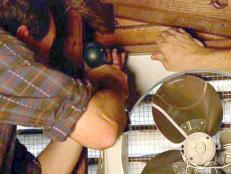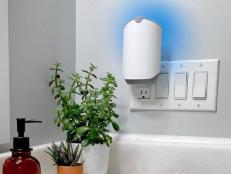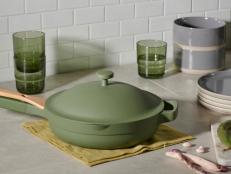Maximum Value Mechanical Projects: HVAC
Nothing adds to the comfort and value of a home quite like an HVAC system. HVAC -- which stands for heating, ventilating and air conditioning -- has been used for many years in commercial buildings but has since become a large trend in residential properties.
Used for a lot more than just heating and cooling, an HVAC system also controls the air quality and energy efficiency of the home. Proper air circulation and precise temperature control give the homeowner more control over their energy bills and increase the livability of the home.
CURRENT TRENDS
- Energy efficiency. HVAC systems have become all the more efficient by implementing energy-saving technology into the design. With increased societal concern over maintaining a healthy environment, new HVAC systems include eco-friendly benefits such as zoned heating and geothermal heat pumps.
Zoned heating: Perfect for two or more story homes, zoned heating saves energy by splitting the heating between lower and upper levels. Similar to non-central heating systems, the zones are controlled by individual thermostats which make heating smaller sections of the home faster and more precise.
Geothermal heat pumps: According to the U.S. Department of Energy, by using the consistent temperature of the earth, geothermal heat pumps can reach fairly high efficiencies (300 percent-600 percent) on the coldest of nights, compared to 175 percent-250 percent for air-source heat pumps on cool days. Through a ground heat exchanger, a geothermal heat pump takes advantage of the even-keel temperatures below ground and are also quieter, last longer, low maintenance and do not rely on the temperature of the outside air to heat and cool the home.
BIGGEST MISTAKE
According to appraisal expert Leslie Sellers, president of the Appraisal Institute, bigger doesn't always mean better. Two variables to consider when looking into an HVAC system are the size of unit -- which drives up cost -- and the standard of energy efficiency.
"If you go with cutting-edge technology, which are the new, efficient machines but also established in the market, you are much better off then going with 'bleeding edge'," says Sellers.
Bleeding edge technology tends to fall into the "most expensive but hasn't stood the test of time" category and could come back to bite you when it's time to sell. The cost of installation and purchase could come out to be much more than what you could gain back in savings over the life of the system.
According to Sellers, it is best to look for tax credits for high efficiency units that you know will aid in energy savings and save you some cash -- both initially and in the long run -- at the same time.
EXPERT TIPS
- On a Budget: If you are looking to purchase an HVAC system with a low-end budget, expect to spend around $7,000 to $12,000. You can still find tax credits and energy efficient models at this price point, but some of the more luxurious features -- such as geothermal heat pumps -- should be avoided to stay on budget.
- Mid-Range: A typical HVAC system will run -- on average -- about $12,000 to $20,000. For those on a mid-range budget, you can expect to be able to find a good, middle-of-the-road system with eco-friendly features -- such as a zoned heating system -- and a wide range of tax credits.
- High-End: Take advantage of advances in technology if you have a higher-end budget. For example, while geothermal heat pumps might be more costly to install than regular heat pumps, they can produce visibly lower energy bills. According to the U.S. Environmental Protection Agency, bills can be anywhere from 30 percent to 40 percent lower. The cost up front on systems such as a geothermal pump can pay you back big time in utility costs.




































